Last mod: 2024.12.30
Firmata Library - Raspberry Pi and Arduino cooperation
Arduino
We can use almost any Arduino. However, this may require small modifications to the Python script. In the example, I use the original Arduino Uno.
Install Arduino IDE
Install the Arduino IDE from https://www.arduino.cc/en/software
Install Firmata on Arduino
Launch the Arduino IDE and:
- Go to Sketch > Include Library > Manage Libraries.
- In the Library Manager, search for Firmata.
- Click Install next to the latest version of the "Firmata" library.
- Repeat instalation for Servo library.
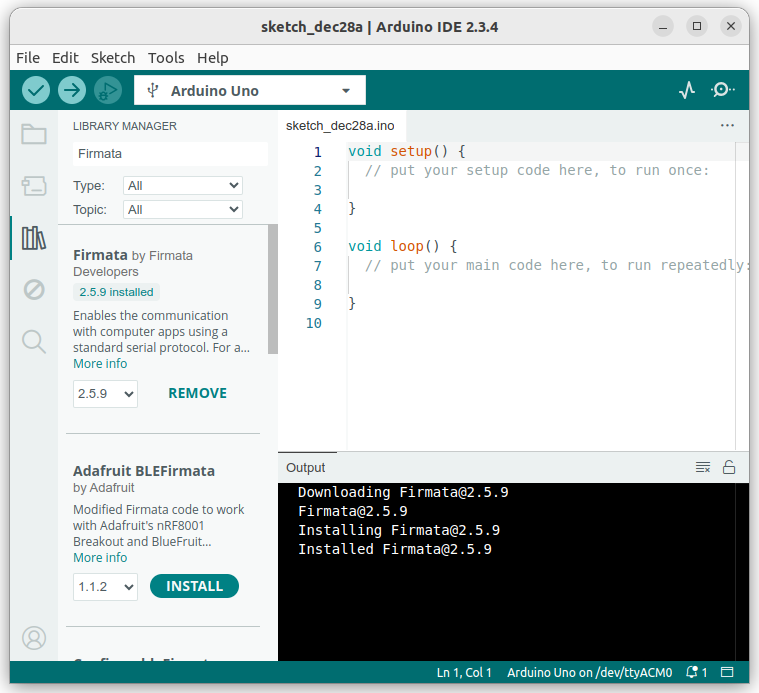
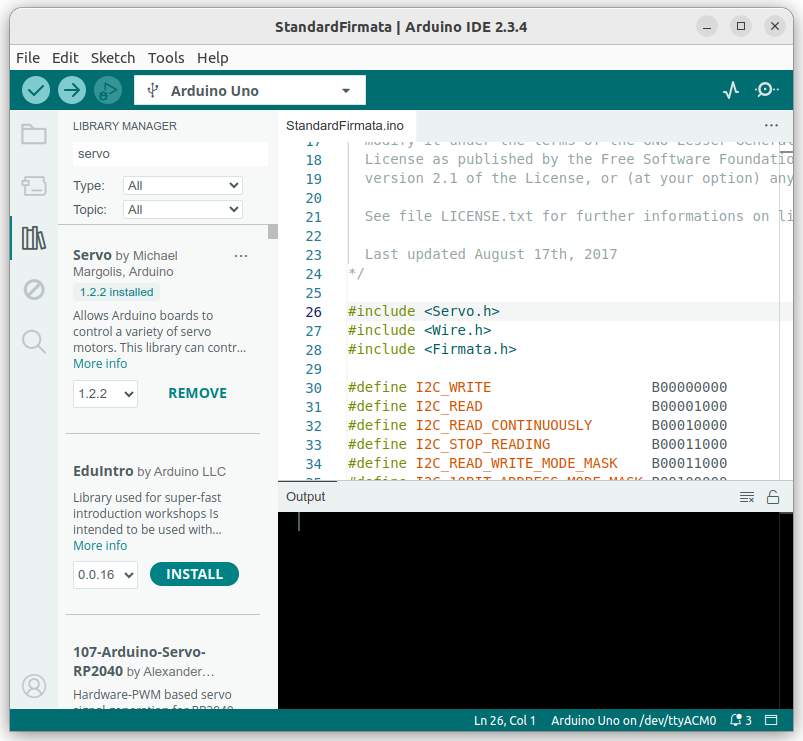
Connect Arduino to PC with Arduino IDE. Open the StandardFirmata example:
- Go to File > Examples > Firmata > StandardFirmata. This sketch implements the full Firmata protocol, making your Arduino ready to communicate.
- Select valid Arduino model Tools > Board, in examle is "Arduino Uno"
- Select valid communication port Tools > Port, in my example (Ubuntu) is /dev/ttyACM0.
- Press the “Upload” button, this will compile and upload the code to the Arduino.
- We can disconnect the Arduino.
Raspberry Pi
Connect the Arduino with a USB cable to the Raspberry.
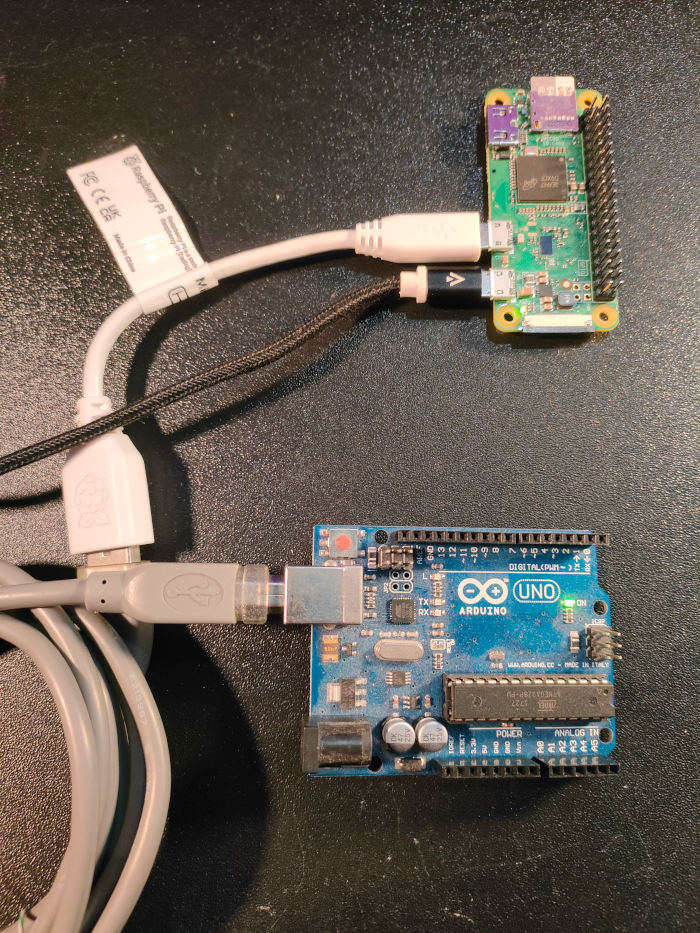
Install Python 3.7
Important! Firmata does not work properly with all versions of Python and therefore we need to install exactly version 3.7. The process of compiling and installing Python is described at https://installvirtual.com/install-python-3-7-on-raspberry-pi/
In simple terms, use bash commands:
sudo apt-get update
sudo apt-get install -y build-essential tk-dev libncurses5-dev libncursesw5-dev libreadline6-dev libdb5.3-dev libgdbm-dev libsqlite3-dev libssl-dev libbz2-dev libexpat1-dev liblzma-dev zlib1g-dev libffi-dev
wget https://www.python.org/ftp/python/3.7.0/Python-3.7.0.tgz
sudo tar zxf Python-3.7.0.tgz
cd Python-3.7.0
sudo ./configure
sudo make -j 4
sudo make altinstall
In file:
vi ~/.bashrc
add Python path:
alias python='/usr/local/bin/python3.7'
Reload configuration:
source ~/.bashrc
Let's verify the Python version:
python3 --version
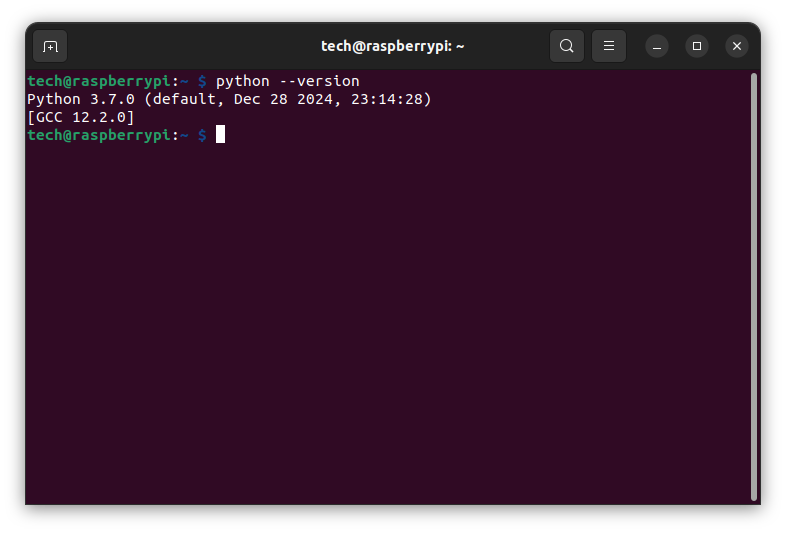
Install Firmata on Raspberry Pi
If everything is ok then we proceed to install the environment and the needed packages:
sudo apt install python3-virtualenv
virtualenv firmata_env
cd firmata_env/
source bin/activate
sudo python -m pip install pyserial pyfirmata
We need to check under what name the connection to the Arduino is available:
ls /dev/tty*
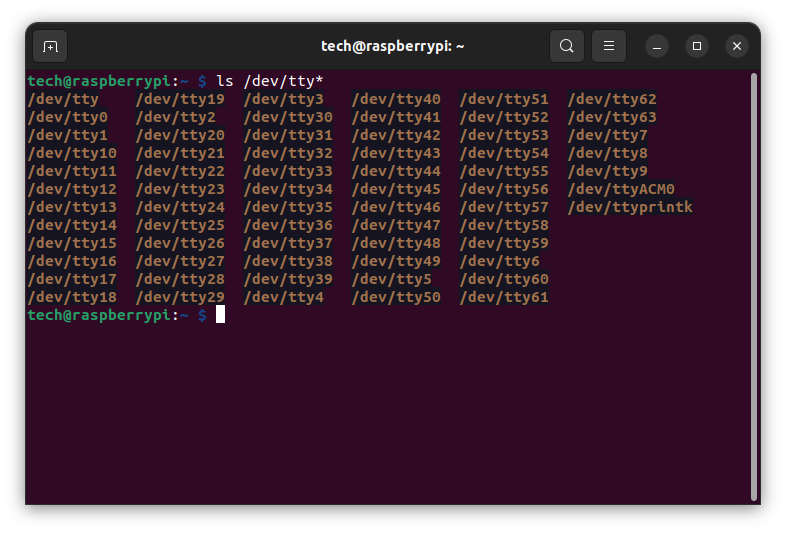
In our example, it is /dev/ttyACM0. We create a simple script that flashes the LED soldered into the Arduino:
blinking_led13.py
We add the code to the file:
from pyfirmata import Arduino, time
board = Arduino('/dev/ttyACM0')
while True:
board.digital[13].write(1)
time.sleep(1)
board.digital[13].write(0)
time.sleep(1)
And we are launching:
python blinking_led13.py
After a few seconds, the LED should start flashing.
Links
https://www.arduino.cc/en/software
https://docs.arduino.cc/retired/hacking/software/FirmataLibrary/
https://installvirtual.com/install-python-3-7-on-raspberry-pi/
https://stackoverflow.com/questions/74585622/pyfirmata-gives-error-module-inspect-has-no-attribute-getargspec